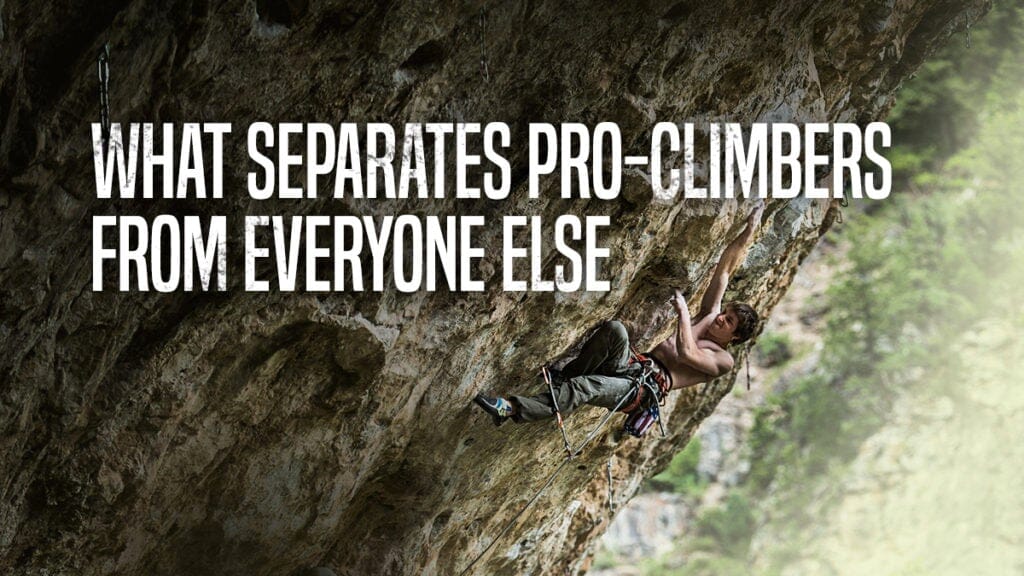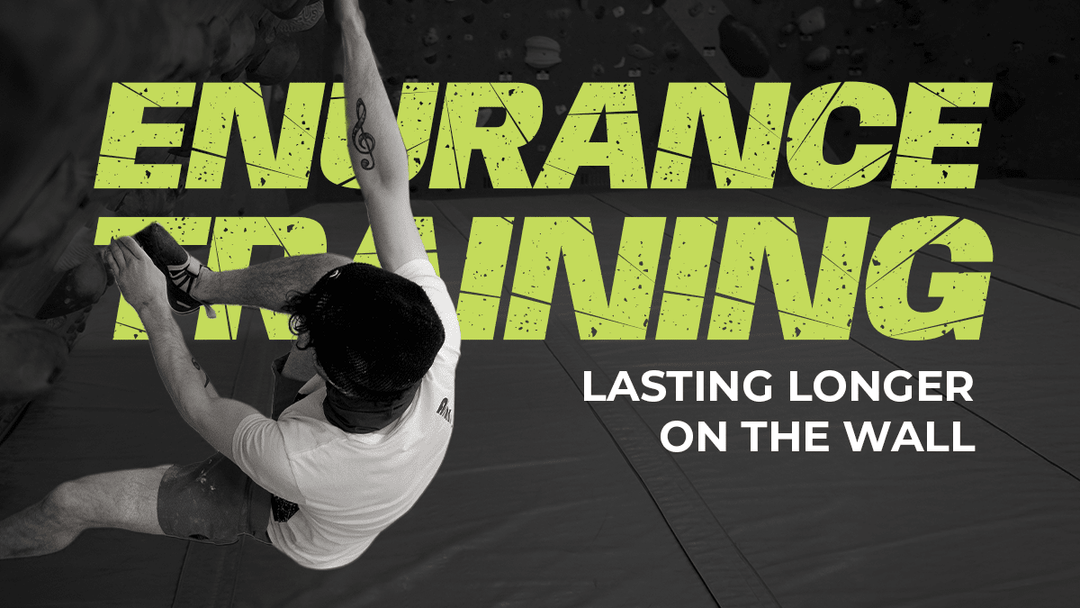What Separates Professional Rock Climbers from Everyone Else

The feats of many professional rock climbers, to the passive observer, sometimes appear impossible or even superhuman. Even avid rock climbers are commonly amazed or inspired by the accomplishments of professional climbers. For most climbers, cleanly leading a 5.11 would be quite the accomplishment; however, for climbers like ambassador Max Snyder, 5.11 is often considered a warmup. So this begs the question, “What are professional rock climbers doing differently than me?”
Well, there’s no easy answer to that question. Depending on who you are, where you are, and what your training routine is it’s likely that professional climbers are doing many things differently than you. So, if you want to climb 5.13d or 5.14a, it’s likely going to require some serious lifestyle changes and commitment to a consistent physical training regime. It’s also going to need serious patience because it’s unlikely that you will be able to climb 5.14 tomorrow–or even next year–without a long-term commitment to the lifestyle that professional climbers live.
To avid rock climbers, however, becoming a sponsored professional climber is not just a dream; for many, it’s an actual goal that appears attainable (or at least remotely feasible).
Few Things That Professional Rock Climbers are Probably Doing a Bit Differently Than You
Study
If this seems vague, you might be thinking, “study what?” The answer: everything. Professional climbers know everything there is to know about climbing. How does cold weather impact climbing ability? How does your diet impact climbing? What does professional footwork look like?
Professional rock climbers have watched climbing footage, read books, talked with every climber they can find, and generally studied the art of climbing for many years. On the surface, it might not seem like there is much to investigate, but the reality is there’s a mountain of literature (pun intended) that can help advance your climbing education. From AMGA guidebooks to John Lock’s technique books, there’s a lot to know.
Active Rest Days
Most professional climbers are incredibly fit, and train most days of the week. But also, professionals are generally smart about avoiding overtraining. Overtraining can lead to injuries, and injuries usually lead to a loss of fitness. Instead, professionals are excellent at taking advantage of “active” rest days. Meaning that instead of doing absolutely nothing but sit on the couch during their rest days, they’re out on easy climbs/hikes or other activities that will keep them limber and ready for next day of hard training.
Obsession
Many professional rock climbers spend a significant portion of their life living out of their cars/vans to gain access to the best rock climbing in the world. Depending on where you live, leaving your life behind and embracing life as a dirtbag might not be necessary; however, it does highlight the passion that many professional climbers have for their sport. While it might not be required for you to go to such great lengths to achieve access to rock climbing, it should put into perspective the amount of dedication that professional level climbers have. Similar amounts of commitment will be necessary if you want to climb 5.14 one day, even if your dedication might be expressed in different ways.
Network
It’s difficult to be a world-class climber without having access to nearly world-class partners. It’s possible to be class without having professional friends. However, it will always be easier to make the jump to the next level if you’re surrounding yourself with partners that will push you hard or match your commitment. Networking around the crag and the gym will help you find climbing partners and mentors that will help you improve, and this is a necessary (but sometimes overlooked) aspect of becoming a professional rock climber
The professional climbers sending 5.14 are probably doing many things differently than you. More than anything, they’re placing climbing at the center of their life. For many, climbing sits on the periphery of what you do–even if you think about it frequently. For most climbers, climbing is the hobby that they maintain after work or on the weekends. For professional climbers, being in the mountains, in the gym, or at the crags is a way of life. Like all professional athletes, climbing is the single driving force that dictates how they live, and how they train. If that sounds okay to you, you’re probably well on your way to climbing 5.14 and being a professional.
So let’s summarize
Study everything; books, documentaries, and personal accounts. Train relentlessly, but don’t forget to incorporate rest days and “active” rest days. Even if you don’t live in a van to be closer to good climbing, know that other wannabe professional climbers are willing and prepared to go to those lengths–even if you don’t live in a van, you have to be willing to match that level of commitment. Network and find partners that will push you towards becoming the climber that you want to become. Finally, never forget that no one climbs 5.14 overnight, and no one becomes a professional rock climber after just one season of dedicated training–professional climbing is a lifestyle, and not everyone is cut out for it…but if you are, the rewards can be significant.




